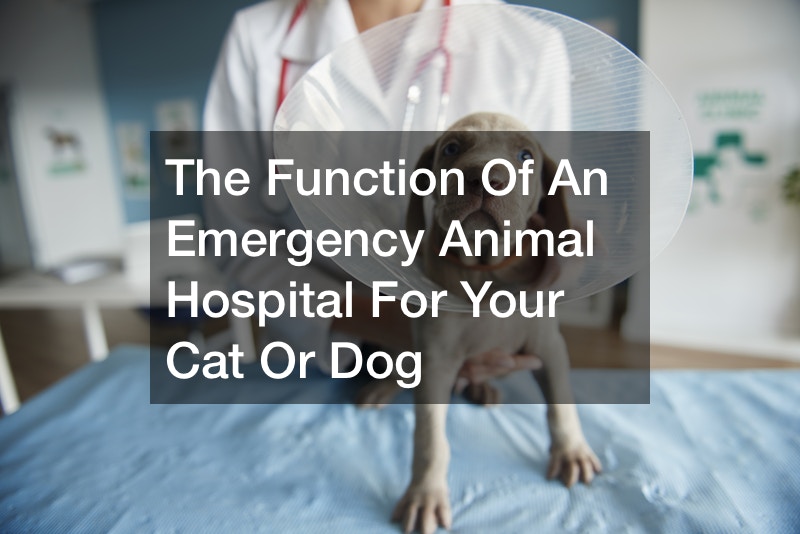
Domestic animals are man’s best friend. Once they start showing signs of a runny nose, and not eating properly for days, owners get worried. This makes it necessary to visit an emergency animal hospital a necessity.
This surgeon or physician treats disorders, diseases, and injuries in animals that are not human. Veterans tend to specialize in treating a special group of animals like livestock or zoo animals. They rely on clinical signs as animals cannot express themselves.
Canine veterinarian.

Canine veterinaries are more experienced than just any other veterinaries. This because they specialize and have a great experience when dealing with this situation. Canine veterinarians have the right equipment and medicine to make sure your dog is treated right.
Cat and dog vet near me.
There are many vets in any location. The important thing is to search online or ask around. Cat and dog vet offers services like animal ambulance, pet spa, dental machines, and digital x-ray machines.
Closest emergency vet to my location.
When the pest in the household develop more complicated diseases and require surgery, that’s where now the emergency vet comes into the picture. An emergency vet is expensive one has no choice but to pay. Emergency vets offer after-hours services, located countrywide, and have certified practitioners.
Dog vet clinic.
Many clinics are depending on the location. Technology has also brought up mobile clinics that offer twenty-four-hour services. Minimizes the travel expenses making it convenient for the person.

Sometimes you can’t just wait for a vet visit. Your pet is showing a runny nose, hasn’t eaten for days or is displaying signs of agitation. It’s time to put down those online tutorials and visit your local emergency animal hospital. Much like an urgent care center for adults, emergency vet services are designed to give your cat or dog immediate care to ensure whatever they’re going through doesn’t get any more serious. This can mean providing them medication for an illness or just a check-up to make sure they’re having a cold and not something worse. Who doesn’t want a little peace-of-mind during a hard year?
Learn below the function of an animal hospital and how they can make life easier for both you and your pet.
Domesticated animals our very best friends. Statistics have shown over 38 million American households own at least one cat, making it the most popular pet next to dogs and birds. Cats are much beloved for their sense of humor and flexibility in just about any environment, from an individual’s apartment to a full family home. Dogs are similar, coming in dozens of different breeds specifically geared to match just about any lifestyle. Like hunting? Get yourself a hound. Prefer a pet that’s great with kids? A retriever should do just fine. An emergency animal hospital can fill in any of the blanks.
Taking your furry friend to the vet is often done to react to sudden warning signs. This is why preventative care is so essential — you need to make sure you take extra steps to prevent the more common disease to save yourself the trip and your pet the frustration of medication and bedrest. Your average veterinarian will suggest two check-ups every year for older pets and just one for adults. Your kitten or puppy will require a visit to the vet every three to four weeks as they get their shots. These steps will help immensely with preventing annoying illnesses and putting them in a better spot physically when they do come down with something.
Fleas are a pest that have both animals and humans scratching for weeks. These tiny insects are incredibly good at showing up where they’re unwanted and have about as much durability as a cockroach, making a vet visit almost imperative if you want to see them gone for good. The female flea will consume over 15 times her own body weight in blood every day. Despite this voracious appetite, a flea is able to live over 100 days without a single meal. Chalk that up to a female flea laying over 2,000 eggs throughout her lifespan and you have a mess that just doesn’t quit.
The best way to get rid of fleas is to drop by your veterinarian and ask for professional treatment. A flea collar can work as a preventative measure, but they’re far from fool-proof. The bite of a flea is notoriously aggravating to your cat or dog and their bouncing nature means they can show up on your clothes, couch or carpet without you any the wiser. They’re also home to a plethora of different diseases, meaning an innocuous bite could harbor some serious consequences down the line. Ticks are similar, both for their jumping ability and tendency to spread illness — make sure to check your pet’s fur every time they come back inside from a walk!
What else can you get from an emergency animal hospital? Older pets are especially prone to sudden attacks, allergic reactions or injuries that could see them debilitated. Always keep a close eye on the most vital signs of a pet emergency. This includes your pet not eating or drinking, appearing ‘glassy-eyed’ or seeming tired. This can be as innocuous as a cold and as serious as a seizure. Blood in the stool, constant vomiting and inability to walk are also serious signs that should have you picking up the phone immediately. Your dog or cat trusts you, so listen closely to what they’re saying.
An emergency animal hospital is your one-stop shop whenever your pet is down for the count.
